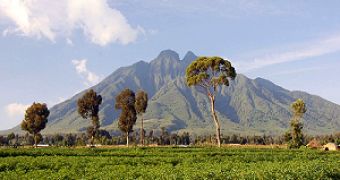On June 17, the World Heritage Committee demanded that permits allowing several companies to roll out oil exploration campaigns close to or within the perimeter of Africa's Virunga National Park be canceled immediately.
The Virunga National Park is located in the Democratic Republic of Congo, and conservationists and wildlife researchers describe it as a biodiversity hotspot.
Two of the companies that hold oil exploration permits allowing them to mess with this wildlife reserve are UK-based Soco International PLC and French company Total SA.
The World Wildlife Fund says that, whereas Total SA has promised to only carry out oil exploration activities outside the Virunga National Park's official borders, Soco International PLC has thus far made no such promises.
As a result, conservationists fear that, should the latter or some other company decide to start looking for oil within the Park's boundaries, the wellbeing of both local biodiversity and local human communities would be endangered.
What's more, rumor has it that such oil exploration activities could eventually lead to Virunga's losing its status as a World Heritage Site.
“Oil exploration could destroy Virunga forever and must not go forward,” said the current Chief Executive Officer of Frankfurt Zoological Society, Christof Schenck.
The same source informs us that Virunga is Africa's oldest national park and one of the most biodiverse regions in the world.
Otherwise put, destroying it for the sake of oil would be a major loss to human society as a whole.
“Virunga National Park is one of the last places on Earth you should go looking for oil. The park is of global conservation importance and is vital for the livelihoods of many people living around it,” conservationist René Ngongo pointed out.
“We are urging alternative development models that are sustainable for the long term – development that provides real benefits to local communities and does not put endangered species at risk,” he went on to say.

 14 DAY TRIAL //
14 DAY TRIAL //